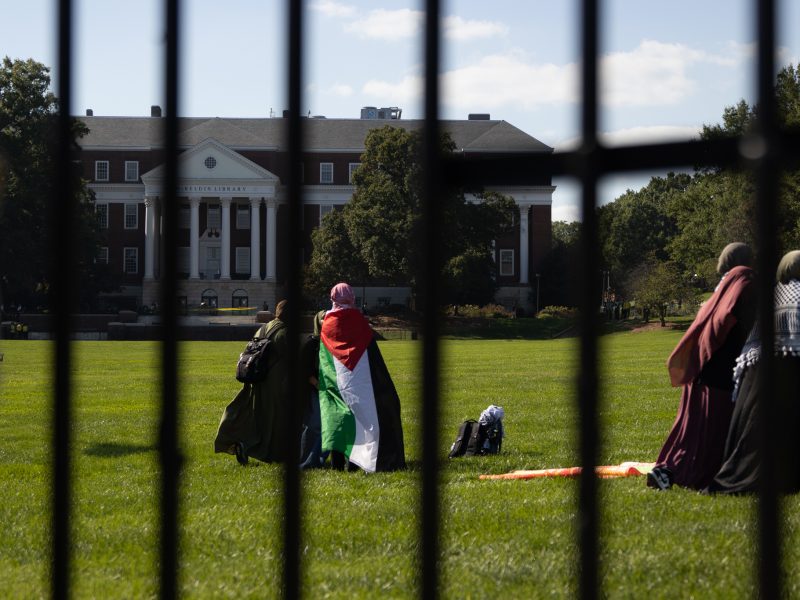For the past few weeks, recent university graduate Katrina Paglia’s co-workers have told her the rise in gas prices is all her fault, exclaiming, “Look what you did,” even though she hasn’t done anything.
And when Paglia gave her full name to schedule a routine eye appointment the receptionist responded “bad time for that name.”
Forty-five women on the campus have spent the last few weeks fending off lame jokes and strange accusations for something they had no control over, all because their names are Katrina. The name has been plastered on newspapers and ingrained in the national consciousness since the devastating hurricane hit the gulf coast three weeks ago.
While wisecracks and ribbing, even from strangers, pales in comparison to the struggle of victims in Mississippi and Louisiana, women named Katrina are learning to deal with their name’s new negative connotation.
“I wish my name would be known for something great like curing cancer or something, but at least no one forgets my name or spells it wrong now,” said Katrina Hoskins, a sophomore government and politics major.
For many student Katrinas, the hurricane’s early life as a Category 1 storm was an exciting period of spotting their name in headlines and on the evening news, and laughing over comparisons of the storm to them.
“[Friends] said ‘Hurricane Katrina’ is coming down the coast’ when they thought I was mad at my boyfriend,” said Katrina Chopper, a senior history major who normally goes by Katie.
“I was running around the office telling people, because not too many people are named Katrina,” Paglia said. “I just remember thinking ‘I hope no one gets hurt from something named after me.”
Tragically, Paglia’s fears came true.
Now that media coverage of the storm and ensuing tragedy is ubiquitous, the knee-jerk reaction to “Katrina” has become a nuisance for many.
“It’s definitely distracting beyond anything else,” said Katrina Altersitz, a sophomore journalism graduate student interning at Capital News Service in Annapolis. “I like to put the news on in the background while I’m working and I keep hearing my name. When I check the newspaper online, my eyes go straight to my name.”
As a reporter, Altersitz is used to seeing her name in print next to the word “By,” not “Bodies” and “Devastation.” Prior to the tragedy, Altersitz longed to see her uncommon name as the subject news story.
“Personally, I just felt kind of guilty,” she said. “I wanted one paper with my name in the headline instead of the byline.”
After Provost Bill Destler sent out a recent campus-wide e-mail with “University Response to Katrina Aftermath” as the subject line, a friend of Altersitz’s sent her a message.
“This makes me think you went on a shooting spree through Stamp Student Union,” he wrote.
Katrina was the 281st most popular female name in 2004, according to the Social Security Administration. The name was ranked #105 in 1984. While the name has dropped in popularity, it still found its way onto weather maps in 2005 because of the hurricane naming system.
In 1953, the National Hurricane Center compiled six lists – each with 21 names starting with letters A through W – for Atlantic tropical storms. All the names were female until 1979, when the center revamped the lists, alternating male and female names. Officials choose ones that are short and easy to pronounce and they are recycled every six years.
According to the National Hurricane Center, “The only time there is a change in the list is if a storm is so deadly or costly that the future use of its name on a different storm would be inappropriate for reasons of sensitivity.”
Thirteen storm names have been retired since 2000, with death tolls ranging from Hurricane Fabian’s eight fatalities in 2004 to more than 3,000 deaths from Hurricane Jeanne in 2004. The World Meteorological Organization now maintains the name lists, substituting a name of the same letter and gender when one retires.
They may decide to replace the name Katrina this year, as the latest fatality estimates exceed 400, according to news reports.
Paglia said the sympathies should go to the victims, and not people with the name Katrina.
“The reality of how horrible it is for the people down there is more important than my name,” Paglia said.
Staff writers Donna Chiu, Patrick Reaves and Rocky Hadadi contributed to this report.
Contact reporters Kate Campbell and Tom Howell Jr. at campbelldbk@gmail.com or thowell@umd.edu, respectively.


